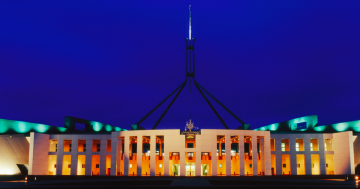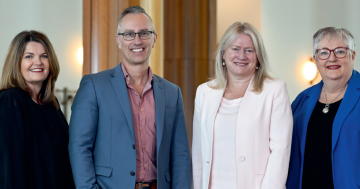Jo Abi* reports on the Australian Human Rights Commission’s landmark national inquiry into sexual harassment in the workplace.
 Australian Sex Discrimination Commissioner, Kate Jenkins (pictured) and Minister for Women, Kelly O’Dwyer last week announced a national inquiry into sexual harassment in Australian workplaces.
Australian Sex Discrimination Commissioner, Kate Jenkins (pictured) and Minister for Women, Kelly O’Dwyer last week announced a national inquiry into sexual harassment in Australian workplaces.
The inquiry is in large part the work of journalist and author Tracey Spicer, who has been leading the #MeToo movement in Australia, helping to expose high-profile cases of sexual harassment.
However, Spicer realised she needed to include everyday Australians in the movement, particularly those workers who don’t have a voice.
“This is something I’ve been privately agitating for since October last year,” she tells 9Honey.
“I commend the Federal Government and in particular the Minister, Kelly O’Dwyer, for taking action that will reveal the structural faults in the current system.”
Commissioner Jenkins said the global conversation about sexual harassment and the #MeToo movement have exposed the true prevalence of the problem and the harm it causes to individuals, workplaces and society.
“The National Inquiry will involve an in-depth examination of sexual harassment in the workplace, nation-wide consultation and extensive research,” Commissioner Jenkins said.
“Importantly, the Inquiry will provide employees, employers and all members of the public with an opportunity to participate in developing a solution to ensure Australian workplaces are safe and respectful for everyone.”
Spicer says we need to make “root and branch change to protect the next generation of Australian workers, for the sake of our daughters and also our sons.”
“The Australian Human Rights Commission is the correct authority to undertake such an inquiry,” Spicer says.
“It will take enormous pressure off the many volunteers at NOW Australia, who have been working tirelessly to maintain momentum in the #MeToo movement, putting pressure society’s power brokers to protect the vulnerable.”
Spicer says she feels “relief” at what she describes as a “red letter day.”
“However, it’s important that the terms of reference are wide enough to effect real, long-term reform, and that the Government of the day acts on its recommendations,” she adds.
“Globally, we’re in uncharted territory here.”
“This is an exciting opportunity for Australia to lead the world in addressing systemic sexual harassment.”
The Australian Human Rights Commission is currently conducting the fourth national survey into workplace sexual harassment, with results expected to be released in August.
Commissioner Jenkins said early indications show rates have increased significantly since the last survey was conducted in 2012.
“The Commission will use the findings of the national survey to identify the scale and nature of the problem across a range of industry sectors,” she explained.
“We will examine the current Australian legal framework on sexual harassment, including a review of complaints made to State and Territory anti-discrimination Agencies.”
“In making our recommendations, we will consider the changing work environment and existing good practice being undertaken by employers to prevent and respond to workplace sexual harassment.”
Commissioner Jenkins said there is an appetite for change and a growing realisation that sexual harassment is not inevitable.
It is unacceptable and it is preventable.
“We need to continue working to create a society where this kind of conduct is unthinkable, and where sexual harassment at work is not something people simply have to put up with,” she added.
“I believe this national inquiry is a huge step in the right direction.”
A national inquiry demonstrates international leadership on this issue.
The Commission is not aware of any other countries where a national inquiry or similar process has been established in response to #MeToo.
* Jo Abi writes for 9Honey in Sydney. She tweets at @joabi.
This article first appeared at honey.nine.com.au.











